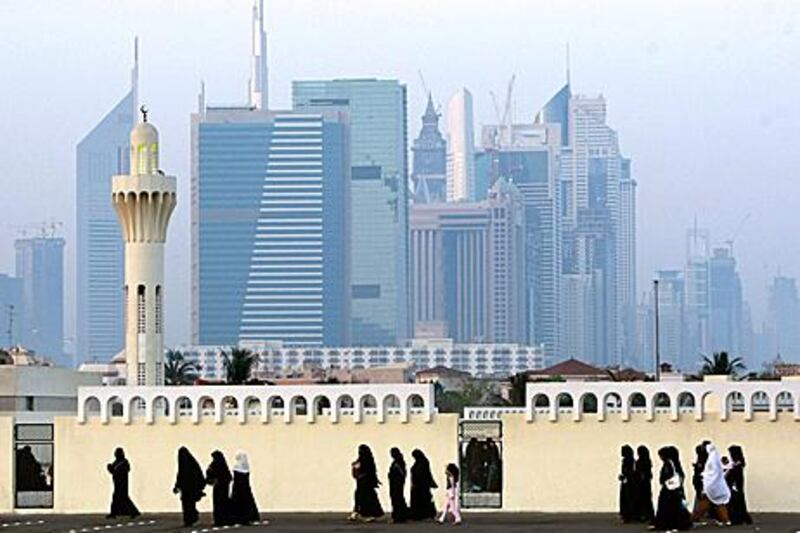Dubai Islamic Bank (DIB) plans to launch the UAE's first real estate investment trust in a move the bank hopes will rekindle the Dubai property market.
Real estate investment trusts, commonly called REITs, allow investors to buy into a portfolio of properties, which pay income from rents and sales in much the same way as a mutual fund profits from equities.
The Emirates REIT, as it will be known, would allow the bank to tap into liquidity from overseas investors seeking access to local property markets.
DIB's management hopes the REIT will provide the necessary spark to rekindle the emirate's property market, which has struggled after the global economic crisis.
It has been developed as part of a joint venture by DIB and Eiffel Management, a French asset management company.
"As the Middle East economy recovers from the global economic slowdown, international investors, and those in the region, are looking for long-term, low-risk and secure investments in the Middle East. Emirates REIT can offer all of these advantages," said Sylvain Vieujot, the chief executive of Eiffel Management and vice chairman of the Emirates REIT.
He dismissed suggestions local markets would be put off by the fact that the REIT would be a new launch. "In a sense it's familiar to local investors. A lot of people have their fortunes in real estate."
Mr Vieujot said he expected the REIT's size to be at least €1 billion (Dh4.92bn) during its lifespan, although he declined to state a target yield.
The REIT will be listed on NASDAQ Dubai and is also planned to have a secondary listing on another market, either in Europe or Asia.
Up to 49 per cent of the trust will be open to overseas investors.
Mr Vieujot said the company was seeking asset contributors to build its portfolio, which currently consists of commercial and residential properties in each emirate except Abu Dhabi.
The portfolio includes a handful of properties formerly owned by Deyaar Development, a unit of DIB, and other buildings outside designated free zones.
The REIT will earn its "Sharia-compliant" label by avoiding investments in properties linked to industries forbidden under Islam, such as gambling, alcohol or the arms trade.
Since 2007, REITs have accounted for 8.9 per cent of global property sales volume, excluding land deals, according to Real Capital Analytics. That share has grown more recently, having accounted for one-tenth of property acquisition volume worldwide in the last three quarters.
DIB said the launch of the REIT was a vote of confidence in the emirate's property sector. A recovery there, however, seems far from certain, analysts said.
"Dubai Islamic Bank is proud to support Emirates REIT, which will have a positive impact not only for the real estate sector but also the UAE's overall economic environment," said Abdulla al Hamli, the bank's chief executive. "All sectors of the Dubai market remain in the downturn phase of the cycle, with the likelihood of continued falls in average prices and rentals over the rest of 2010," Jones Lang LaSalle, a property consultancy, said at the Cityscape Global conference in Dubai last month.
Nakheel had planned to launch two REITs in 2008 but they never materialised.
Majed Azzam, a property analyst at Alembic HC Securities, said the successful launch of the REIT could spur similar offerings by local companies.
"You'll see a lot more funds like this as the market stabilises," he said.
"There's definitely a lot more interest now because Dubai property is trading at distressed levels.
"This is an old idea and everyone was trying to do it," Mr Azzam said.
"DIB, along with Deyaar, were also looking to form a real estate fund but they weren't able to raise enough money. The fact that they're able to do it now means there's more appetite from investors in the UAE."
*With reporting by Kevin Brass






